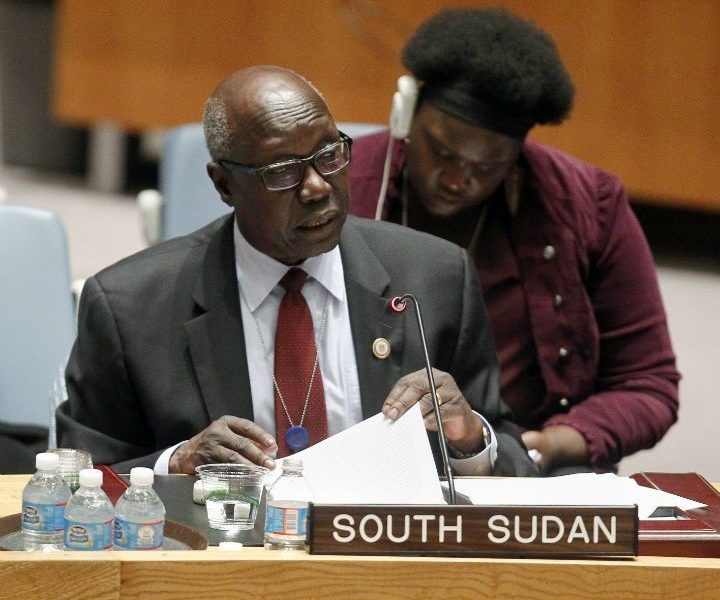By William Madouk Garang
Prominent politician Dr. Francis Mading Deng has bitterly dismissed the claims that he is behind fueling of Twic-Ngok bloody conflict.
Mading cautioned those gossiping about to zip-up their mouth, adding that he has been working hard to make sure that peace and reconciliation reign between the warring communities – Twic of Warrap and Ngok of Abyei.
“The fact that question was raised to me is baffling because what have I ever done that will indicate I am fueling the conflict? Nothing, what I have said and I have written about is bringing the community together,” Mading told No.1 Citizen Daily Newspaper in an exclusive interview.
“There is nothing I have said, nothing I have done that indicates I am a party of the conflict. On contrary, I called upon Bona Malual and myself to play leadership role as elders of the community. we should bring our people together” he added.
Dr. Mading, who is a former South Sudan Ambassador to the United Nations and a native son of Abyei Administrative Area, said their roles as elders were to spread peace and not conflict.
According to him, it doesn’t make sense for the communities to fight one another over internal border issues when they have common enemy to be dealt with.
“You cannot rise over the question of the border between communities within family to be killing one another the way they have been killing themselves” he lamented.
He added that when for instance people criticize one community, there are possibilities that they might also react negatively.
“So, if you are criticizing Twic, you must find a way to criticize Ngok. If Francis is an elder of Ngok Dinka and Ngok Dinka say something negative about Bona then both of them must be put at same level” he explained.
Claims by Fact-findings team
On May this year, the findings of the Investigation Committee on the Inter-Communal clashes in Aneet revealed that two prominent personalities among others have fueled the Twic-Ngok conflict.
In a 94-page report, the committee found that publications written by Bona Malual and Abyei intellectuals including Dr. Francis Mading Deng fueled the conflict.
In the report, the committee also established that the Survey initiated by Abyei Special Administrative Area found the root cause of the conflict.
It noted that the SSPDF in Majak-Kol and Rumkoor barracks failed to contain the situation which led to insecurity that resulted in the loss of lives and properties.
This, according to the committee, is because the soldiers had allied themselves with their communities.
It also observed that the presence of UNISFA on the ground limited the role of SSPDF in providing security in the area, especially in Abyei.
In its findings, the committee says UNISFA also failed to carry out its duties of protecting the civilians as mandated by the status of force agreement, or SOFA.
The committee further observed that the poverty, underdevelopment, and unemployment contributed to insecurity in the area.
The delay in the settlement of Abyei status continues to frustrate the two communities.
Recommendations
In its recommendations, the investigation committee on the inter-communal clashes in Aneet called for formation of the national border demarcation committee to address issues of internal boundaries in the country.
It also called for the establishment of a special court for Aneet.
The committee also recommended that new robust security measures be put in place to manage the current and future security situation in the area.
It called for empowerment of traditional authorities to address and resolve local issues within the communities there.
The eleven-member committee was formed by President Salva Kiir in February this year to investigate Aneet market shooting.
The committee led by Vice President for Service Cluster Hussein Abdelbagi Akol handed its report to President Salva Kiir.




